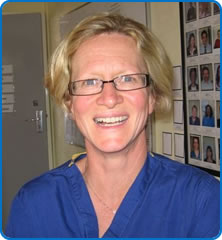Dr Sarah Martindale - Anaesthetics

GMC Number: 3545214
Year of first qualification: 1991, London
Specialty: Anaesthetics
Clinical interest: Anaesthesia for neurosurgery, trauma and plastic surgery
Secretary: Anaesthetic department
Telephone: 0117 414 5114
Dr Sarah Martindale qualified in London at St Marys Hospital in 1991 before completing training in anaesthetics in Oxford and Bristol in 2002.
Dr Martindale is the North Bristol NHS Trust (NBT) lead for NCEPOD and has an interest in medical law & ethics.
She is also one of the consultants involved in preoperative assessment and cardiopulmonary exercise testing.

 A comprehensive range of services for patients with skin diseases are provided by specialist dermatologists at North Bristol NHS Trust. The service is run by a team of 6 Consultants who work across Bristol. There are general clinics for any type of skin problem and fast track referral clinics are run every week for patients with suspected skin cancer.
A comprehensive range of services for patients with skin diseases are provided by specialist dermatologists at North Bristol NHS Trust. The service is run by a team of 6 Consultants who work across Bristol. There are general clinics for any type of skin problem and fast track referral clinics are run every week for patients with suspected skin cancer. 